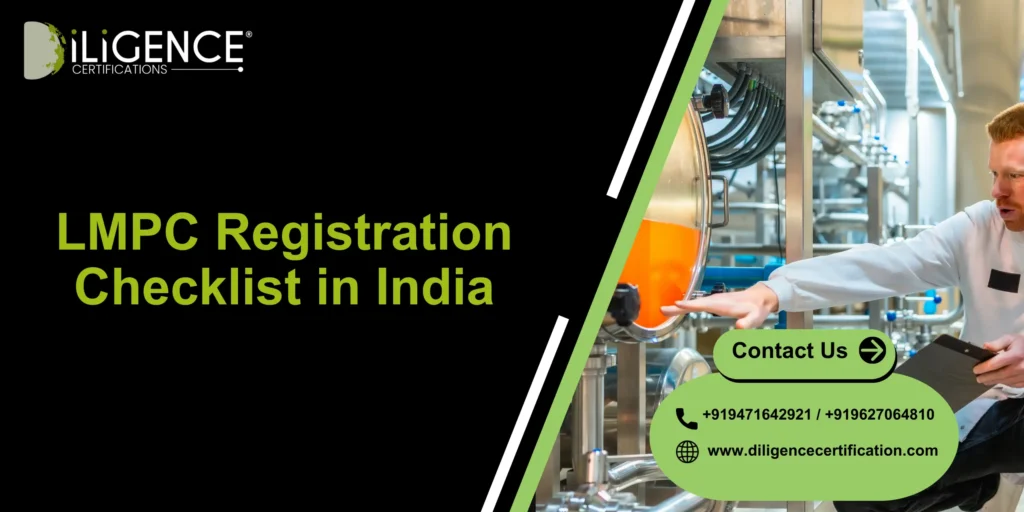- Certification for Smart speakers evolve homes with voice‑control convenience.
- Indian users demand BIS certification for Smart speakers reliability.
- CRS certification assures compliance with telecom and Wi‑Fi norms.
- Process under IS 616: 2017 includes testing, documentation & lab approval.
Introduction
A couple months ago, we worked with an IoT startup in Bengaluru that had developed a voice‑assistant speaker. They were eager to launch in major retail chains, but were unaware that certification for smart speakers fall under India’s Compulsory Registration Scheme. When their distributors asked for BIS CRS licence, they had no certification. Panic ensued.
In India, the Bureau of Indian Standards mandates that every smart speaker—whether with or without display—must comply with IS 616:2017 before being sold. No certification, no market access. They turned to us, we guided them through testing, documentation, and got their certificate in under 45 days. This article explains that entire process in granular detail, so you’re never caught off‑guard.
What is BIS CRS?

BIS CRS (Compulsory Registration Scheme), under BIS in India, is governed under the BIS Act, 2016, and the BIS (Conformity Assessment) Regulations, 2018. The scheme was set to regulate and assure the quality and safety of various electronic and IT products in India.
Though BIS certification is voluntary in nature, checking certain products has been mandated by the Government to correlate their conformity to Indian Standards for the issues of consumer safety, public health, environment, and security.
This scheme prevents the entry of substandard imports and thus encourages domestic manufacturing of goods. Besides this, the scheme ensures that consumers get only high-quality and compliant products.
What is BIS Certification for Smart speakers?
All smart speakers in India must undergo certification under the BIS CRS upon compliance of IS 616:2017 in aspects of safety, EMI/EMS conformity, and consumer trust.
BIS mandates under the Compulsory Registration Scheme for applicable electronic items. IS 616:2017 covers smart speakers in terms of protection against electric shock, EMC, and performance criteria.
An importer of smart speakers or a local manufacturer must register with BIS and launch only after successful product testing in an Indian testing laboratory accredited to NABL.
Why IS 616:2017 Matters
Electrical Safety & EMC
This standard ensures your speaker meets Indian norms for insulation, permissible leakage currents, and does not emit harmful interference. Smartphones and audio devices may pass CE or FCC overseas—but Indian EMC limits differ. Non‑compliant products face rejection at Customs or at retail points.
Consumer Confidence & Brand Story
Imagine a customer comparing two smart speakers: one with the BIS CRS mark and one without. The mark says loudly—”officially verified for India”. Brands this certification on their packaging and websites. It’s more than paperwork; it’s part of the brand story.
Benefits
1. Legal Compliance
Smart speakers fall under IS 616:2017. BIS certification is mandatory to avoid Customs delays or rejections.
2. Mandatory for Sales
As per CRS certification, a BIS CRS number is required to list or sell smart speakers on platforms like Amazon or Croma.
3. Builds Consumer Trust
BIS-certified products reflect adherence to safety and quality standards. Displaying the BIS mark boosts customer confidence and reassures buyers that the product meets India’s regulatory norms.
4. Faster Import Clearance
With valid BIS documents and an Indian AIR, foreign smart speakers clear Customs without unnecessary hold-ups.
5. Boosts Brand Image
Certification under IS 616:2017 shows global standards compliance—ideal for Indian startups and export-oriented brands.
6. Safety & Quality Assurance
BIS testing proves your product’s electrical safety, EMC limits, and build quality—reducing returns and failures.
7. Future-Proof Compliance
BIS-certified smart speakers stay ahead of evolving norms like E-waste, RoHS, or TEC registration for smart devices.
Who Must Apply: Domestic vs Foreign Manufacturers
Indian Manufacturers
If you manufacture smart speakers in India, the BIS licence is granted only to the manufacturer, not importers or sellers. Each factory location and brand needs a separate licence if multiple locations or brands exist
Foreign Manufacturers
Overseas companies must appoint an Authorized Indian Representative (AIR)—an Indian company or legal person—to apply and liaise with BIS. The licence is still issued to the manufacturer but processed via the AIR
BIS CRS Certification Process for Smart Speakers

1. Manufacturer Registration
Register on the BIS portal. Foreign brands must appoint an Indian Authorized Representative (AIR).
2. Documentation Preparation
Compile technical files: circuit diagram, user manual, PCB layout, BOM, and product photos.
3. Sample Testing under IS 616:2017
Submit two units to a BIS-recognized Indian lab. Lab tests for electrical safety, EMC, and voice function compliance.
4. Receive Test Report
Lab issues IS 616:2017 compliance report—valid for BIS submission.
5. CRS Application Submission
Upload the report + documents to BIS, pay fees, and apply for the CRS number.
6. BIS Review & Approval
Once approved, you receive a Registration Number. Affix the BIS mark on packaging and begin selling.
Documents: India vs Overseas Manufacturers
| Field | Domestic Manufacturer | Foreign Manufacturer |
| Registration | Direct under BIS | Through Indian Authorized Report |
| Dossier | Standard documentation | Additional product-comparability report |
| Testing | In India lab | Foreign report may be accepted after review |
Quality Testing Standards for Smart Speakers Under BIS Certification
Tests are mandatory under the CRS in India for ensuring the safety, reliability, and performance of the smart speakers. These tests are conducted in BIS-recognized laboratories according to a prescribed testing procedure.
The standard to comply with for smart speakers is IS 616:2017, which is based on IEC 60065:2014. The procedure is exhaustive and involves many tests to ensure the compliance of the product with required safety and quality norms. The major tests include:
- Labeling and Marking Verification: Ensures all information required by law is correctly portrayed on the product packaging and on the device itself.
- Radiation Testing: Checking for emission of electromagnetic radiations at safe levels.
- Thermal Performance Testing: Study of the thermal behavior of the product under elevated temperatures to assess the possibility of heat generation.
- Electrical Safety Inspection: Another examination for protection against electric shock and compliance with accessories for electrical protection.
- Mechanical Strength Testing: To provide a verification for normal and accidental use of the product.
- Component Quality Testing: Inspected for defectiveness and integrity of the internal electronic parts.
- Wiring Evaluation: Assures safe and standard electrical connections inside the instrument.
- Physical Characteristics Assessment: Checks on the overall feel and materials used.
- Water Resistance Testing: Determines susceptibility to being splashed with water or a few drops from accidental spillages.
- Connectivity and Communication Test: Verifies the uninterrupted usage and operations of the communication features, both wirelessly and wired.
- Insulation Testing: Guarantees proper insulation that would otherwise be prone to short circuits or injuries.
How BIS Compliance Elevated a Bengaluru IoT Startup
Our Bengaluru IoT startup originally planned to import smart speakers from China and sell directly via Amazon. Without certification, they faced removal notices. On appointing AIR and lab testing, they re‑labelled product packaging, updated firmware instructions and passed BIS audit. Their packaging now proudly bears the BIS CRS mark, and they secured a tie‑up with Croma. This compliance transformed consumer trust—and retail acceptance.
Conclusion:
Smart speakers, be they domestically produced or imported, must comply with IS 616:2017 and obtain BIS Certification under CRS to be legally sold. The certification is not merely a formality—it is a government-imposed safety assurance worth clearing customs, listing on e-commerce platforms, and trustworthiness of the consumer himself.
For Indian startups and even manufacturers, navigation through BIS certification for smart speakers in India needs due diligence certification, precise documentation concerning technical files, and testing that meets BIS standards. Faults and delays are most often caused by absent technical files, selection of the wrong laboratory, or wrong interpretations of CRS application processes.
A quick and stress-free process would be to work with a BIS consultant or compliance partner having comprehensive knowledge of IS 616:2017. At Diligence Certification, we can provide full handholding through every step-from the nomination of AIRs to coordination with labs to BIS registration-for both Indian and foreign brands.
Whether you are thinking of launching a new voice-enabled product or want to add to your smart speaker lineup, stay smart on compliance: start early, stick with the process, and do it right once with certification.
FAQs
What documents are needed for BIS certification of smart speakers in India?
Key documents include the BIS application form, business licence, test reports, trademark proof, user manual, product specs, and ID of the authorised signatory or AIR. These are mandatory under the CRS scheme for smart speakers.
How long does BIS certification take under IS 616:2017?
Typically 6–8 weeks. Document preparation (1–2 weeks), lab testing (about two weeks), BIS portal verification & issuance (2–3 weeks). Our clients have managed end‑to‑end in ~45 days.
Can a foreign smart speaker brand sell in India without BIS CRS certification?
No. The Electronics and IT Goods (CRS) Order prohibits sale, import, or distribution of uncertified smart speakers. Brands must appoint an Authorized Indian Representative and obtain BIS CRS licence before market entry.
What is the validity of BIS CRS certificate for smart speakers?
The certificate is valid for two years from issuance. It can be renewed for subsequent periods (typically up to 5 years) provided there is no change in product model, manufacturing site, or technical specifications.
Does each smart speaker model require separate BIS licence?
Not necessarily. Models of the same product category under the same brand and manufactured at the same site can be covered under one licence. But if location or brand differs, separate licences are mandatory.
Are Bluetooth‑only speakers also covered under IS 616:2017?
Yes. Bluetooth speakers and smart speakers (with or without display) are included under IS 616:2017 mandatory CRS coverage since April 2021
Who bears cost of lab testing for BIS CRS certification?
The manufacturer or AIR (for foreign brands) bears lab costs. Testing fees vary depending on product complexity and test matrix, charged by BIS‑approved labs.
What penalties exist for non‑compliance of BIS CRS norms?
Brands selling uncertified smart speakers may face seizure of goods, fines, and legal action under sections 3(2) and 4(3) of the Compulsory Registration Order. BIS compliance is strictly enforced
How does a brand display the BIS mark post‑certification?
Once certified, the brand must print the CRS Standard Mark and the unique registration number on product labels, packaging, and user manual. It’s essential for legal compliance and consumer assurance.
Can renewal be automatic or must re‑test the product?
If specifications and manufacturing process remain unchanged, renewal is straightforward through the BIS portal, with renewal fees. Re‑testing isn’t required unless there are changes to product design or components.








 BIS Certification
BIS Certification
 CDSCO
CDSCO
 CPCB
CPCB
 LMPC
LMPC
 WPC Approval
WPC Approval
 Global Approvals
Global Approvals
 TEC
TEC
 ARAI
ARAI
 BEE
BEE
 ISO Certification
ISO Certification
 Drone Registration
Drone Registration
 NOC For Steel
NOC For Steel



















 Business Registration
Business Registration















 Legal Services
Legal Services
 Trademark Registration
Trademark Registration
 Copyright Registration
Copyright Registration
 Patent Registration
Patent Registration















































